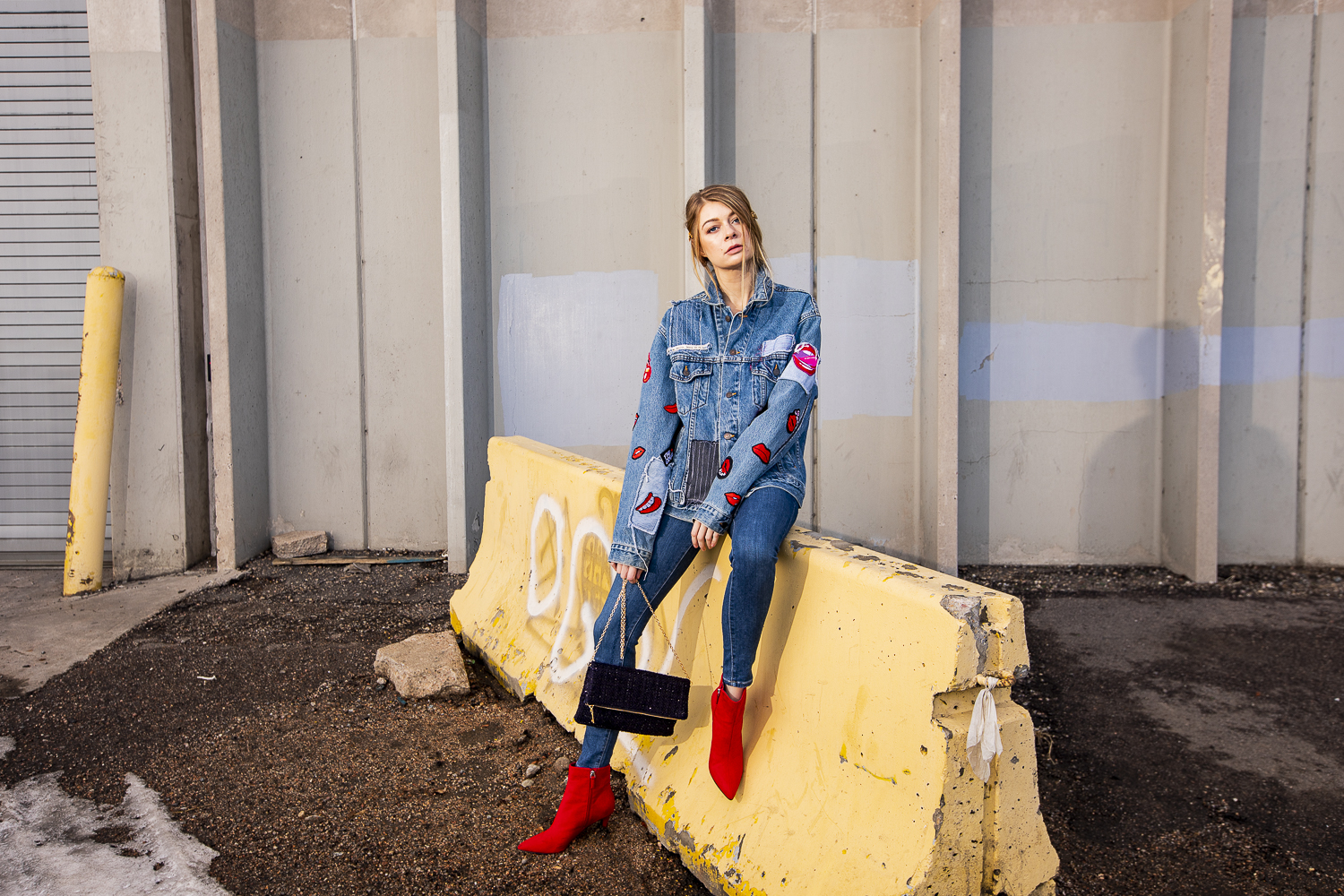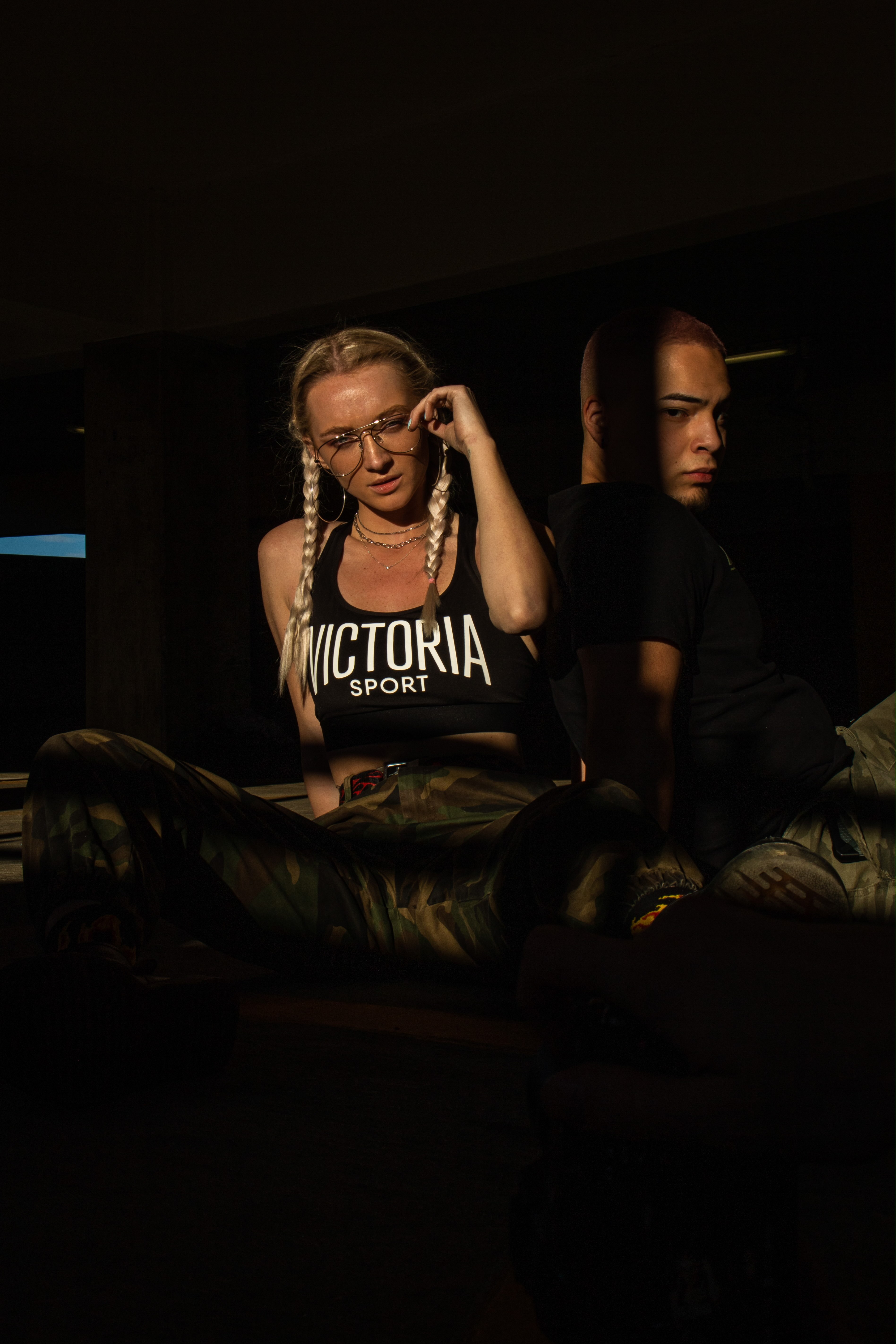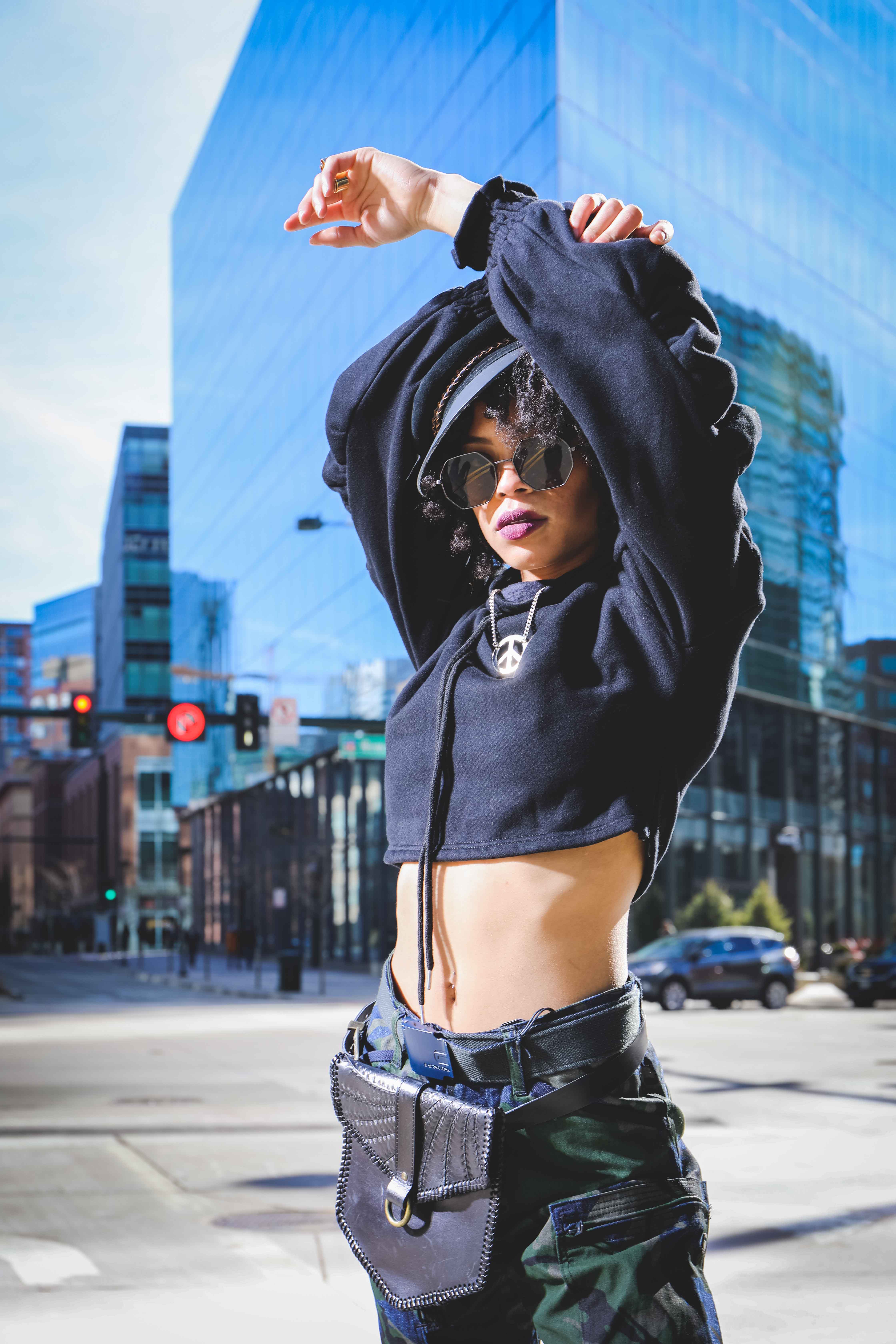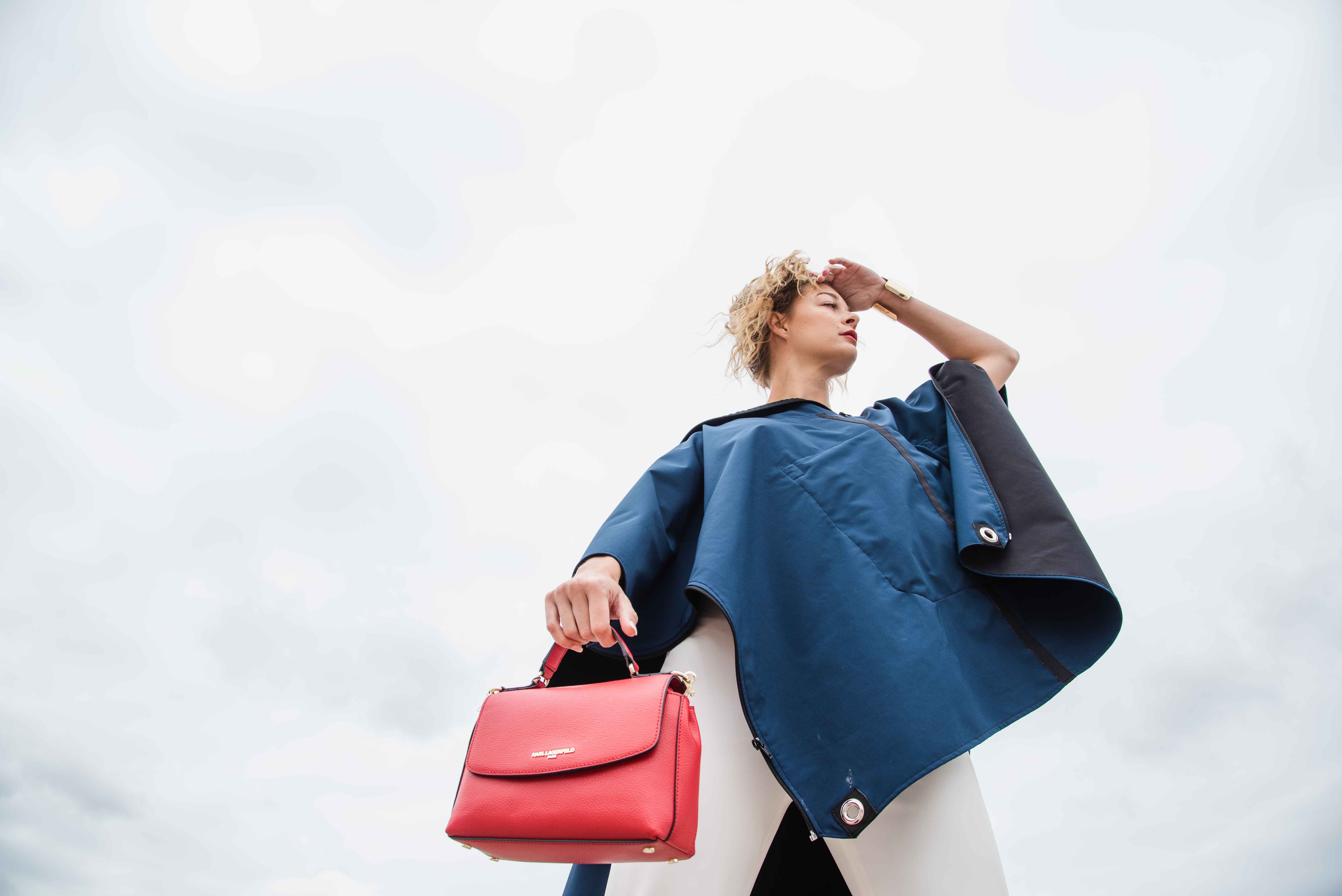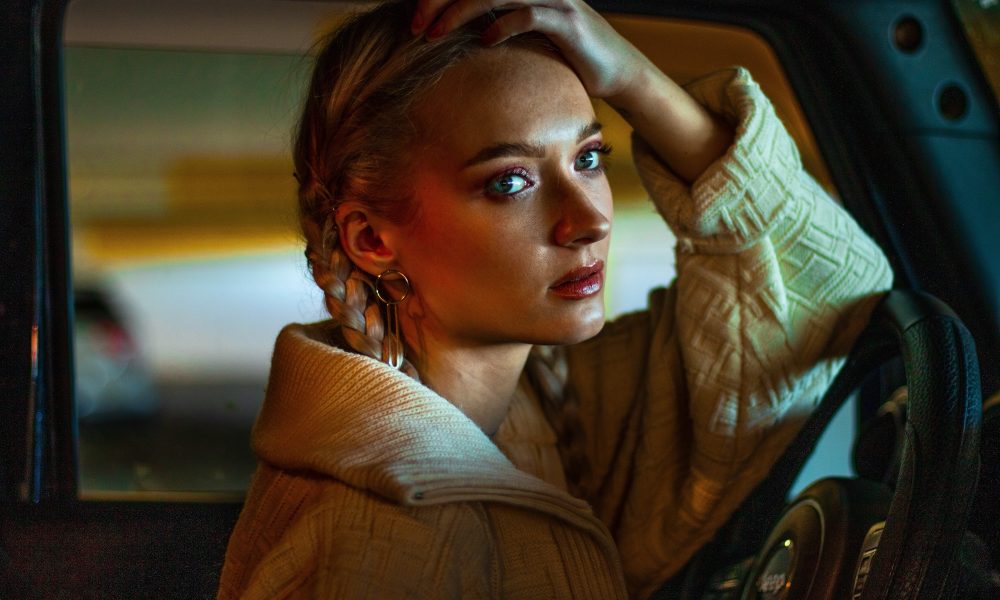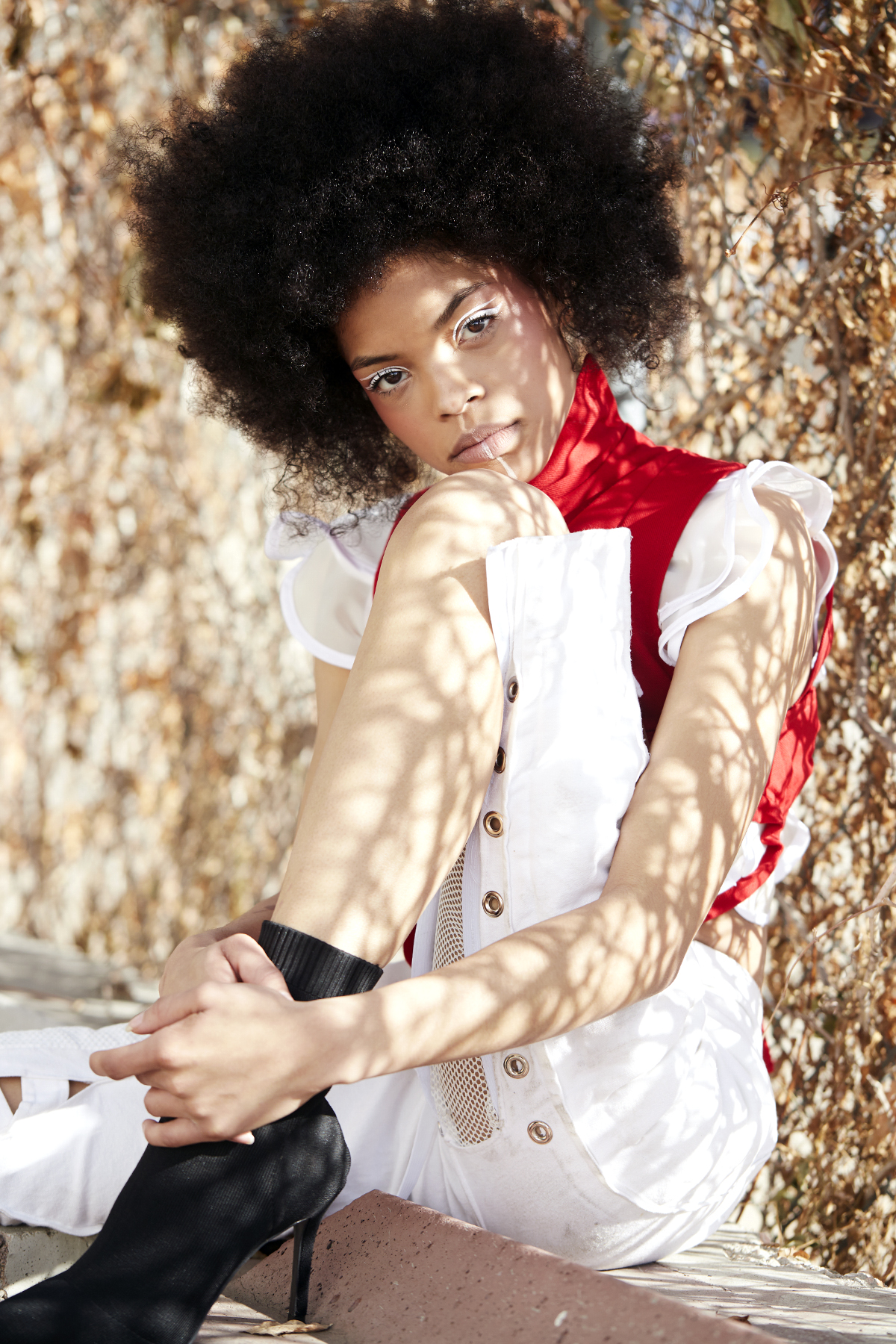Over the past year, many stories of industries affected by the COVID-19 pandemic have been written – stories of teachers, medical professionals and small businesses. However, in other industries, those whose lives have also been impacted as a result have not yet had their stories told. Local models had their work come to a screeching halt this time last year. Since then, they’ve had to pivot, get creative and think critically about what is important on a set.
After talking with a few Denver models about work non-negotiables, what makes a job memorable and what is important to them as they embark on a new chapter of their industry, a few themes rose to the top.
Communication is Key
Every model interviewed said the thing that makes their job the most memorable is communication. Whether that’s clear communication around what the photographer is looking for, or collaboration from makeup artists and hairstylists, the models all noted that feeling heard and seen on set, equates to feeling safe.
“Knowing who I am working with creates a sense of confidence and a level of comfortability on set. This allows open communication between everyone and ensures a good working relationship,” said Denver-based model, Paris Creed.
Model Zola French explained she feels most comfortable when a photographer is willing to collaborate. “When I’m approached as a fellow creative, rather than someone who is there to be silent and try on clothes, I feel more respected.” French went on to say that she feels fortunate to be able to work with amazing creatives that understand her experience is valuable. “Treating a model with respect and allowing them to give their input and voice their ideas is incredibly important to me,” she confirmed.
Denver-based model, DanShay Martinez, appreciates collaboration. She feels heard when photographers show her photos during the shoot to get her input. Or when a makeup artist finishes their work and asks if there’s anything she doesn’t like. “It makes me feel heard because they care about my opinion on my appearance and the production of the shoot,” she explained.
To foster a sense of comfort on set is pretty simple: communicate and allow models to feel like they’re a part of the project. While this should really be true for anyone on a set, models can be in a vulnerable position, so allowing them to feel safe is key.
Unique Experiences Across Different Cities
Much like modeling across cities around the globe, each market in the Denver area has unique characteristics of the job.
In French’s experience, modeling in cities across the Front Range brings a different “feel.” She explained, “in Boulder, I focus more on collaborative concepts, and using the mountains and Colorado landscape to our advantage. Modeling in Boulder as well as Colorado Springs is a lot more laid back than in Denver, and it can be amazing to find new spots right in your backyard, and meet with photographers and models last minute to come up with something great.” In French’s experience, this includes trips to Estes Park and Lefthand Canyon, as well as driving up Flagstaff Mountain in the middle of a snowstorm.
While metro Denver may not be a photographer’s first location choice, French is impressed with the way photographers and businesses use the city to their advantage. “Denver is certainly one of a kind, in the variety of people and brands. As more of a hub for artistry and culture, when I was first introduced to the scene I was pleasantly surprised at what Denver had to offer,” she said.
DanShay Martinez explained that though she’s been a part of larger productions in other cities, the overall vibe in Denver feels the same as her experience elsewhere. “Everything still runs practically the same, and everyone wants a smooth, productive outcome.”
Creed modeled in an international hair show in Madrid early last year, and her experience was “absolutely phenomenal.” The stark difference from her experience locally, she noticed, was the different atmosphere. “From the late, and I mean late, nightlife to the pure beauty of each building. There were models from all around that were sophisticated, elegant and seemed to all be 10 feet tall.” Models’ work ethic and professionalism, however, were the same as she had experienced locally. “The models were able to switch from laughing and making jokes to putting on a ‘game face’ when it was time to hit the runway; much like the behind the scenes here in Denver,” she described.
Modeling During the Pandemic
For these local models, working during the pandemic has been a roller coaster. With the canceling of Denver Fashion Week and countless other jobs, the amount of work for local models dwindled to almost non-existent in 2020. That said, models just got creative. Because her parents and her own health were high-risk, French was home-bound and not able to participate in shoots for most of 2020. “I had to adjust to a changing industry and learn the importance of marketing and connecting online,” she explained, like integrating social media into her modeling. “While the pandemic has certainly been difficult, I like to see it as giving me the opportunity to learn more about the industry, meet some amazingly talented people, connect with online magazines and form relationships with business owners and small brands,” French said.
Gratitude is also a common thread through these local models. “At the end of the day I try to make the most of what’s around me, because what’s most important is to never give up!” said Martinez. For Creed, modeling during this time allowed her to be more grateful for her modeling “family.” While local models may have had fewer experiences to connect through fashion as a result of COVID-19, they found new ways to remain a family. “We recently lost a member of our Goldie Mae family and the support from afar was outstanding. We were able to connect, celebrate, remember, honor and just be a shoulder to lean on for one another,” she explained.
While COVID-19 has had a dramatic impact on nearly all of our lives, we can all work to find the bright spots. For French, she feels fortunate to be able to explore amazing local scenery, and continue working locally, as “traveling with the pandemic has made modeling outside of Colorado very challenging.” She also explained that working with friends, locals and being able to network with small businesses are other positive aspects of modeling locally.
Looking toward the future, there will definitely need to be more safety precautions during photoshoots and fashion shows. “I think we will all be a little more cautious on set and around others,” explained Creed.
What’s Next?
After the past year, and what we’ve all collectively experienced, it’s clear that persistence and perseverance are key, and that rings true in the modeling industry as well. The advice that Martinez would give to other models is “to never give up even after rejection. You truly have to be dedicated to this field of work.”
Martinez, Creed and French have faith that the industry will return and look forward to events like Denver Fashion Week. They have confidence in the talent of Denver designers and know that their work will help lift the industry back up. “I have met so many truly phenomenal designers here in Denver and everyone brings such a unique style to the table,” said Creed. From the “unique point of view” from Maxwell Bresler, to “inclusive modeling pioneer” Jasmine Lewis, the Denver fashion industry is in good hands.
This year, models have had to dig deep and get scrappy, network (virtually) and wait intently for the industry to restart. What helped them keep their drive? “The key is confidence,” said French. “Confidence does not simply include complacency. The dichotomy of confidence is being ok with your current self and always looking for ways to improve. This means studying your posing, constantly fostering your creativity and being comfortable with getting out of your comfort zone,” she explained.
Exploring purpose and identifying passion is important as well, according to French. “Think about why you’re doing this and what kind of message you want to project into the world. Once you have a purpose and a drive, opportunities within this industry will begin to grow. What makes a good model is someone who is not afraid to let their personality be a part of every shoot and interaction they have. A willingness to try and fail is what success is made out of,” she said. It’s a lesson of resiliency that we can all stand to learn.

